Related Research Articles

Hugh Ramapolo Masekela was a South African trumpeter, flugelhornist, cornetist, singer and composer who was described as "the father of South African jazz". Masekela was known for his jazz compositions and for writing well-known anti-apartheid songs such as "Soweto Blues" and "Bring Him Back Home". He also had a number-one US pop hit in 1968 with his version of "Grazing in the Grass".

Jonathan Paul Clegg, was a South African musician, singer-songwriter, dancer, anthropologist and anti-apartheid activist.
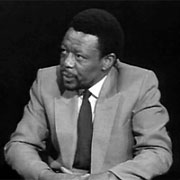
Mongane Wally Serote is a South African poet and writer. He became involved in political resistance to the apartheid government by joining the African National Congress (ANC) and in 1969 was arrested and detained for several months without trial. He subsequently spent years in exile, working in Botswana, and later London, England, for the ANC in their Arts and Culture Department, before eventually returning to South Africa in 1990. He was inaugurated as South Africa's National Poet Laureate in 2018.

André Philippus Brink was a South African novelist, essayist and poet. He wrote in both Afrikaans and English and taught English at the University of Cape Town.
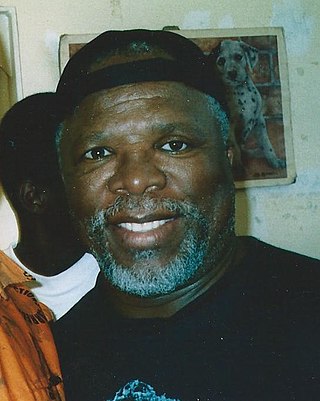
Bonisile John Kani is a South African actor, author, director and playwright. He is known for portraying T'Chaka in the Marvel Cinematic Universe films Captain America: Civil War (2016) and Black Panther (2018), Rafiki in the 2019 remake of The Lion King and Colonel Ulenga in the Netflix film Murder Mystery (2019).
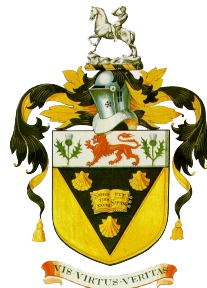
Rhodes University is a public research university located in Makhanda (Grahamstown) in the Eastern Cape Province of South Africa. It is one of four universities in the province. Established in 1904, Rhodes University is the province's oldest university, and it is the sixth oldest South African university in continuous operation, being preceded by the University of the Free State (1904), University of Witwatersrand (1896), University of South Africa (1873) as the University of the Cape of Good Hope, Stellenbosch University (1866) and the University of Cape Town (1829). Rhodes was founded in 1904 as Rhodes University College, named after Cecil Rhodes, through a grant from the Rhodes Trust. It became a constituent college of the University of South Africa in 1918 before becoming an independent university in 1951.

Antjie Krog is a South African writer and academic, best known for her Afrikaans poetry, her reporting on the Truth and Reconciliation Commission, and her 1998 book Country of My Skull. In 2004, she joined the Arts faculty of the University of the Western Cape as Extraordinary Professor.
The poetry of South Africa covers a broad range of themes, forms and styles. This article discusses the context that contemporary poets have come from and identifies the major poets of South Africa, their works and influence.

Sibongile Khumalo was a South African singer and song writer. She sang classical, jazz, opera and traditional South African music. She was noted for singing at the inauguration of Nelson Mandela in 1994, as well as the final of the Rugby World Cup the following year. She was appointed to the Order of Ikhamanga in 2008.
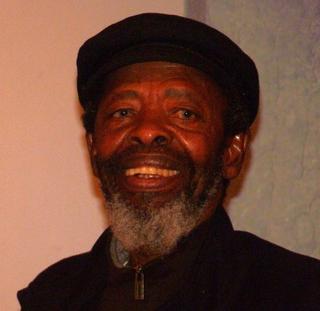
Keorapetse William Kgositsile, also known by his pen name Bra Willie, was a South African Tswana poet, journalist and political activist. An influential member of the African National Congress in the 1960s and 1970s, he was inaugurated as South Africa's National Poet Laureate in 2006. Kgositsile lived in exile in the United States from 1962 until 1975, the peak of his literary career. He made an extensive study of African-American literature and culture, becoming particularly interested in jazz. During the 1970s he was a central figure among African-American poets, encouraging interest in Africa as well as the practice of poetry as a performance art; he was well known for his readings in New York City jazz clubs. Kgositsile was one of the first to bridge the gap between African poetry and African-American poetry in the United States.
Paul Roos Gymnasium is a public, dual medium high school for boys in the town of Stellenbosch in the Western Cape province of South Africa, which opened on 1 March 1866 as Stellenbosch Gymnasium. It is the 12th oldest school in the country.

Donato Francisco Mattera, better known as Don Mattera, was a South African poet and author.
Peter Magubane is a South African photographer.
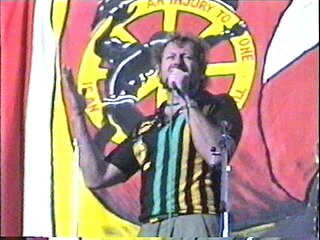
Keith Gottschalk, is a South African poet, known for his anti-apartheid poetry. He was born on the 14 March 1946 in Cape Town, where he still lives. He studied at the University of Cape Town 1964–70, where he was a tutor and junior lecturer to 1983.
Peter Clarke was a South African visual artist working across a broad spectrum of media. He was also a writer and poet.
Heinrich Stephen Samuel Willemse is a South African academic, literary critic, activist and author. He currently serves as professor in the Department of Afrikaans at the University of Pretoria, South Africa. He was the former editor-in-chief of the African literary journal Tydskrif vir Letterkunde.
Saleem Badat is a South African sociologist, higher education policy specialist, and researcher. He is Research Professor in Humanities at the University of Kwazulu-Natal.
Phillippa Yaa de Villiers is a South African writer and performance artist who performs her work nationally and internationally. She is noted for her poetry, which has been published in collections and in many magazines and anthologies, as well as for her autobiographical one-woman show, Original Skin, which centres on her confusion about her identity at a young age, as the biracial daughter of an Australian mother and a Ghanaian father who was adopted and raised by a white family in apartheid South Africa. She has written: "I became Phillippa Yaa when I found my biological father, who told me that if he had been there when I was born, the first name I'd have been given would be a day name like all Ghanaian babies, and all Thursday girls are Yaa, Yawo, or Yaya. So by changing my name I intended to inscribe a feeling of belonging and also one of pride on my African side. After growing up black in white South Africa, internalising so many negative 'truths' of what black people are like, I needed to reclaim my humanity and myself from the toxic dance of objectification." She has also said: "Because I wasn't told that I was adopted until I was twenty, I lacked a vocabulary to describe who I am and where I come from, so performing and writing became ways to make myself up." As Tishani Doshi observes in the New Indian Express: "Much of her work is concerned with race, sexuality, class and gender within the South African context."
Gladys Thomas (1934-2022) is a South African poet and playwright. Thomas was one of the first black South African women poets to be published. Her co-authored debut anthology, Cry Rage, was the first book of poetry to be banned in South Africa.
Maria Macdiarmid "Mary" Burton is a South African activist, former president of the Black Sash and was a commissioner on the Truth and Reconciliation Commission.
References
- 1 2 3 4 "James David Matthews", South African History Online.
- ↑ James Matthews, "How reading can change your life", Mail & Guardian, 15 April 2016.
- 1 2 3 "About James Matthews", The Poetry Archive.
- ↑ "James Matthews (South Africa)" Archived 16 February 2017 at the Wayback Machine , Centre for Creative Arts, University of Kwazulu-Natal, 3 November 2014.
- ↑ Paul Maylam, "Citation for James Matthews" (Honorary graduand, Rhodes University, 31 March 2016).
- ↑ "The Order of Ikhamanga" Archived 6 March 2016 at the Wayback Machine , The Presidency, Republic of South Africa.
- ↑ "James Matthews (1929 - ), The Order of Ikhamanga in Silver", The Presidency, Republic of South Africa.
- ↑ Aziz Matthews,"James Matthews: Struggle poet and laureate of National Honours", Seeking the Soapbox, 15 May 2014.
- ↑ "UWC honours struggle poet and sports administrator at its Summer Graduation", 2013 March Graduation, University of the Western Cape.
- ↑ "A Cat Who Got Lucky With Words" Archived 6 August 2016 at the Wayback Machine , Rhodes University, 31 March 2016.
- ↑ Yazeed Kamaldien, "Cape poet urges universities to teach his work" Archived 6 August 2016 at the Wayback Machine , Studentlife, Rhodes University, 30 March 2016.
- ↑ Rustum Kozain, "James Matthews being James Matthews", Africa is a Country, 31 July 2014.
- ↑ "Home". encounters.co.za.